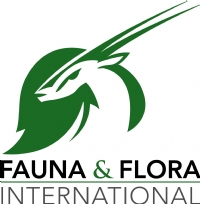environment jobs Est. in 1994. Delivering Environment Jobs for 31 years
| Title | Conservation of world’s rarest cat wins Best of the Best Award |
| Posted |
|
|
|||||||||||||||||||||||||
| Description |
A project supported by Fauna & Flora International (FFI) and implemented by our local partner Liga para a Protecção da Natureza (LPN) has been selected by EU member states as one of the six of the Best of the Best EU LIFE Nature projects in 2010. The project, which has now ended, aimed to conserve habitat in the Moura/Barrancos region of for the . “This is well deserved recognition for our partners LPN, who are playing a key and significant role in the delivery of field based conservation for the Iberian lynx in Portugal. The lynx is an Iberian species and it is only through the efforts of LPN and other groups in Spain and Portugal, and with the support of internationals such as FFI, that the lynx will be brought back from the brink of extinction”, said Paul Hotham, FFI’s Regional Director Eurasia. The Iberian lynx is the rarest of the entire cat species, being the only one classed as Critically Endangered by the World Conservation Union (IUCN).Once distributed across Portugal and Spain, there are now less than 200 Iberian lynx left in the wild divided into two populations located in Southern Spain. The main reasons for this decline are the loss and fragmentation of habitat due to infrastructure and agricultural development, direct persecution, and the decline of the lynx’s basic prey the wild rabbit. The rabbit has been devastated by recurrent outbreaks of myxomatosis and hemorrhagic fever over the last 40 years, reducing rabbit numbers by 95%! FFI and LPN have been working as part of the international lynx conservation effort, for eight years to secure a corridor of cork oak forest (montado) and maquis habitat for the Iberian lynx in Portugal. In addition to protecting this habitat, which is of global importance in itself, the corridor will allow for the expansion and reconnection of isolated lynx populations and, in the near future, for the reintroduction of captive bred lynx or the movement of wild individuals into this safe area. A combination of captive breeding and habitat conservation in both Spain and Portugal in recent years is slowly turning the fortunes of the lynx around. Lynx are now being successfully captive bred in Spain and Portugal and the first wild lynx in almost 10 years was spotted in the Moura/Barrancos region of Portugal last year. FFI/LPN’s ongoing projects, which include a , work with local people to promote habitat management and land use practices that have, for many centuries, created the landscapes favoured by lynx. Our work also supports the conservation and recovery of wild rabbit, raises the awareness of local communities, land managers and schoolchildren to the plight of the lynx, and shows how sustainable land management can benefit not only the lynx but also the local economy and culture. The project also delivers environmental education targeted at local people and schools with a focus on such things as species conservation and habitat management and its relationship to hunting and forestry management. |
